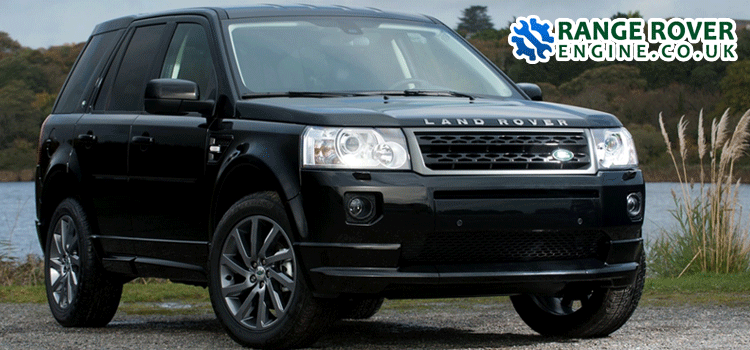How Do Reconditioned Land Rover Freelander Engines Compare to New Ones?

When it comes to maintaining the performance and reliability of your Land Rover Freelander, engine replacement can be a crucial decision. Choosing between a reconditioned engine and a brand new one involves various factors, including cost, performance, longevity, and environmental impact. We delves into the key aspects that differentiate reconditioned Land Rover Freelander engines from their brand-new counterparts. By understanding these differences, Freelander owners can make informed decisions that best suit their needs and budgets.
Understanding Reconditioned Engines
Reconditioned engines, also known as rebuilt engines, undergo a comprehensive restoration process. This involves disassembling the engine, cleaning all parts, and replacing any worn or damaged components. The reconditioning process ensures that the engine meets or exceeds original equipment manufacturer (OEM) standards. For Land Rover Freelander engines, this means restoring the engine to a condition that is as close to new as possible. Technicians meticulously inspect and replace parts such as pistons, camshafts, and bearings, ensuring that the engine functions optimally. This process not only restores performance but also extends the engine’s lifespan.
Cost Comparison: Reconditioned vs. New
One of the most significant factors influencing the decision between a reconditioned and a new Land Rover Freelander engine is cost. Reconditioned engines are typically more affordable than new ones. The lower cost is due to the reuse of existing engine components that are still in good condition, combined with the replacement of only those parts that are worn or damaged. In contrast, new engines come with a higher price tag, reflecting the cost of entirely new parts and manufacturing processes. For budget-conscious Freelander owners, a reconditioned engine can offer a cost-effective solution without compromising on performance.
Performance and Reliability
Performance and reliability are crucial considerations when comparing reconditioned and new engines. Reconditioned Land Rover Freelander engines are thoroughly tested to ensure they meet OEM specifications. This rigorous testing includes checking for proper compression, oil pressure, and overall engine performance. While new engines guarantee peak performance out of the box, reconditioned engines, when properly rebuilt, can offer comparable reliability. However, it is essential to have reconditioned engines rebuilt by reputable professionals to ensure high standards are met. When done correctly, a reconditioned engine can deliver performance levels close to that of a new engine.
Environmental Impact
Opting for a reconditioned Land Rover Freelander engine can have a positive environmental impact. Reconditioning involves reusing many of the engine’s components, which reduces the demand for new materials and minimizes waste. This process conserves resources and reduces the environmental footprint associated with manufacturing new engines. In contrast, producing new engines requires significant energy and raw materials, contributing to environmental degradation. By choosing a reconditioned engine, Freelander owners can contribute to sustainability efforts and reduce their vehicle’s overall environmental impact.
Warranty and After-Sales Support
Warranty and after-sales support are essential considerations when choosing between reconditioned and new engines. New Land Rover Freelander engines typically come with a comprehensive manufacturer’s warranty that covers various aspects of the engine for a specified period. This warranty offers peace of mind to owners, ensuring that any defects or issues will be addressed by the manufacturer. Reconditioned engines, on the other hand, also come with warranties, but the terms and coverage may vary. It is crucial to review the warranty details provided by the reconditioning company to understand what is covered and for how long. Reputable reconditioning companies often offer warranties that provide substantial coverage, ensuring confidence in the rebuilt engine’s reliability.
Longevity and Maintenance
The longevity and maintenance requirements of reconditioned versus new engines can influence the decision-making process. New Land Rover Freelander engines are designed to provide long-lasting performance with minimal maintenance in the early years. These engines are built with entirely new parts, which typically have a longer lifespan before requiring significant maintenance. Reconditioned engines, however, can also offer impressive longevity if rebuilt to high standards. The maintenance requirements for reconditioned engines may be slightly higher due to the use of some existing components, but with regular servicing and proper care, they can deliver reliable performance for many years.
Availability and Installation
The availability and installation process of reconditioned and new Land Rover Freelander engines differ significantly. New engines might have longer lead times due to manufacturing and shipping processes. In contrast, reconditioned engines are often more readily available, especially if sourced from reputable reconditioning companies that maintain a stock of rebuilt engines. The installation process for both engine types should be performed by qualified technicians to ensure proper fit and function. However, reconditioned engines can sometimes offer quicker turnaround times, allowing Freelander owners to get their vehicles back on the road sooner.
Resale Value
Resale value is an important consideration for Freelander owners thinking about the long-term value of their vehicle. New engines can enhance the resale value of a Land Rover Freelander, as buyers often perceive new engines as more reliable and less prone to issues. However, a well-documented reconditioned engine can also positively impact resale value, especially if the reconditioning work was performed by a reputable company and comes with a solid warranty. Providing maintenance records and warranty details can reassure potential buyers about the quality and reliability of a reconditioned engine, thereby maintaining or even enhancing the vehicle’s resale value.
Conclusion
Choosing between a reconditioned and a new Land Rover Freelander engine involves weighing various factors, including cost, performance, reliability, environmental impact, warranty, longevity, availability, and resale value. Reconditioned engines offer a cost-effective and environmentally friendly alternative to new engines, with the potential for comparable performance and reliability when rebuilt to high standards. New engines provide the assurance of entirely new parts and comprehensive warranties but come at a higher cost. By carefully considering these factors and selecting a reputable provider for reconditioned engines, Freelander owners can make informed decisions that best meet their needs and budget, ensuring their vehicle continues to deliver exceptional performance and reliability.


